By Alyce Collins
THESE TWINS had an extremely rare condition which meant they shared a PLACENTA and developed in the same amniotic sac leading doctors to warn that it was likely that one or BOTH could die, but after a risky c-section the toddlers made it home just in time for their mum’s first Mother’s Day.
Branch manager Stevie Mardy (28) from Leeds, England, and her husband Karl were amazed to find out they were expecting twins during their first ultrasound in September 2017 when the sonographer pointed out two heartbeats.
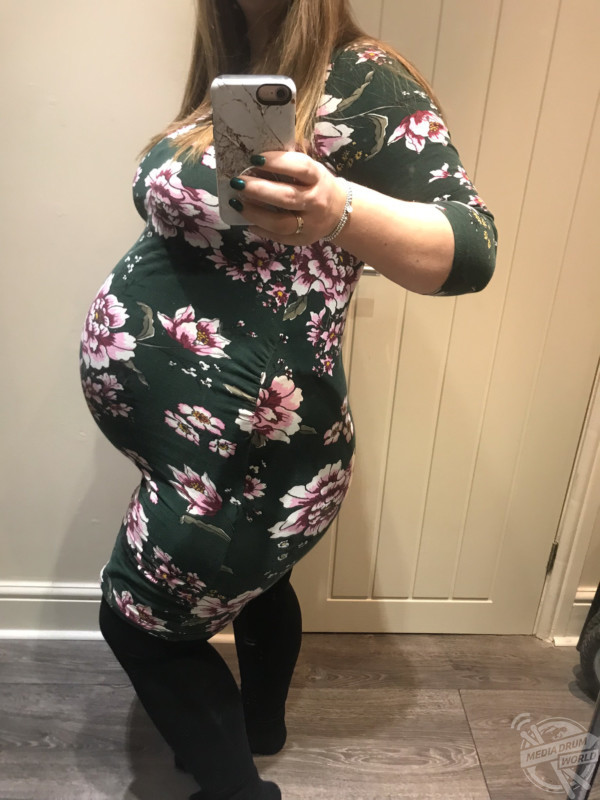
Incredulity soon turned to fear when the sonographer requested a second opinion on something which concerned her. After a team of staff had observed the ultrasound, they explained that they couldn’t see a membrane and it was possible that the twins were sharing a placenta.
The condition, known as monochorionic monoamniotic (MCMA), is very rare and made the pregnancy high-risk because any movement could result in one of the babies squashing the other, or the tangling of umbilical cords, resulting in the loss of one or both babies.
The couple had only heard of the condition once before as Karl’s mother had unfortunately lost MCMA twins in the past, which added to their fears. From 10 weeks onwards, Stevie received scans every two weeks to monitor umbilical cord compression and entanglement.
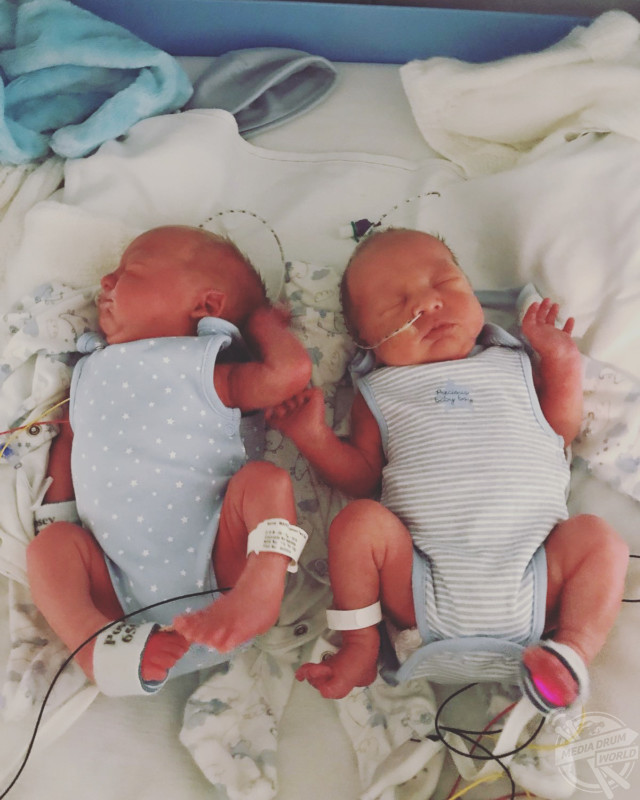
A natural birth was ruled out as a c-section was the safer option for Stevie and the twins. However, the twins couldn’t reach full-term because the risk of them getting crushed was too great.
At 32 weeks and five days, Stevie had her c-section and the couple’s twin boys, Jenson and Quinton were welcomed on February 20, 2018 weighing 4lb 11oz and 4lb 13oz respectively, after a fearful nine months.
Jenson and Quinton spent 13 days in NICU and a following six days in transitional care before coming home on Mother’s Day last year, which was the greatest present Stevie hoped for.
“Our first scan took place at Leeds General Infirmary on September 19,” said Stevie.
“The sonographer explained she would just find her bearings and began the ultrasound scan at first. As she ran the probe across my belly, I watched the screen and with shock and amazement I asked if there were two babies in there. She replied saying ‘yes’, there were two babies and two heartbeats on the screen.
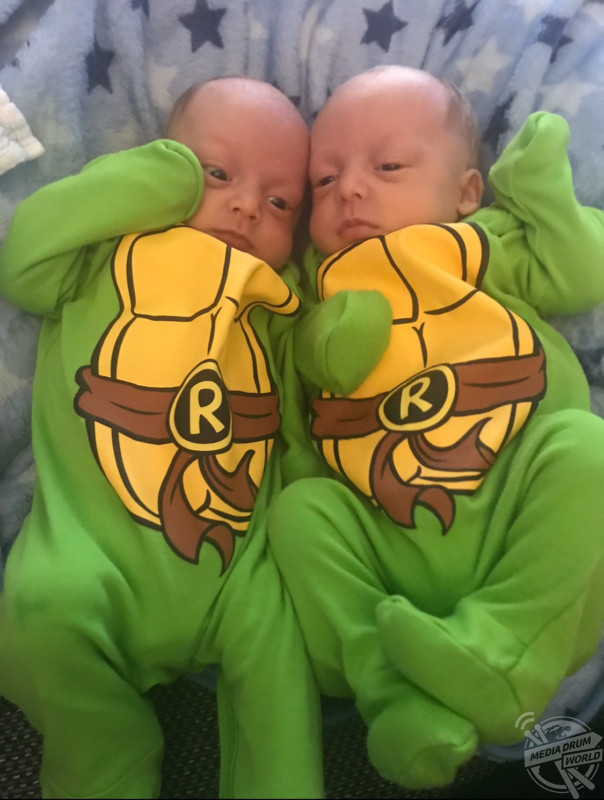
“After that she said she was going to get her colleague to check something. Karl and I were quite concerned, having never been through this experience previously and it worried us that there was something amiss.
“The team explained that they couldn’t see a membrane, which was extremely rare. They expected that we may be able to see one at the next scan, so they booked us in with the twin team for two weeks later.
“During those two weeks I wasn’t too concerned because they hadn’t specifically said they were MCMA and, considering how rare they are, they were sure at the next scan they would find a membrane. At this point, no one had ever delved into how high the risks were.
“Our second scan came around and they confirmed it was an MCMA pregnancy. The consultant explained this would be an extremely high-risk pregnancy which could result in the loss of one or both of our babies.
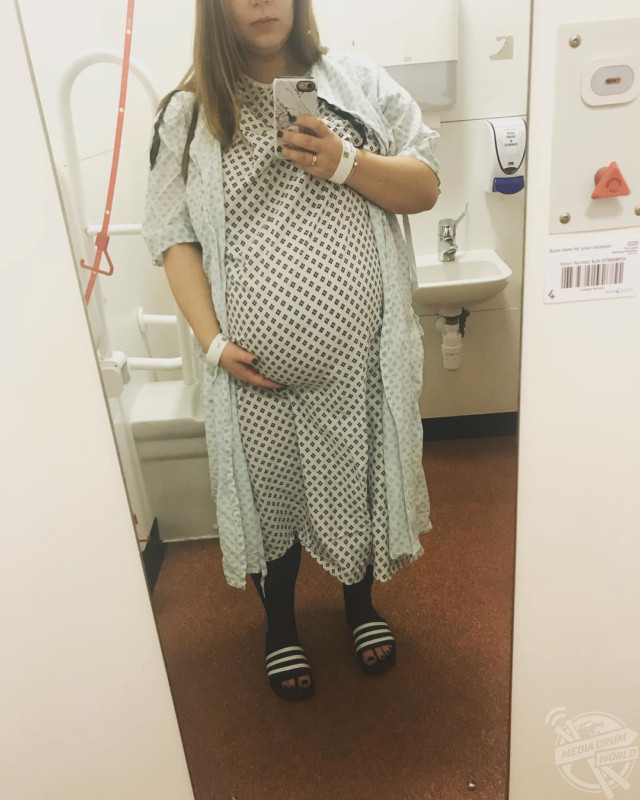
“This was heart breaking to hear; we actually knew about the risks as Karl’s mum had unfortunately lost her MCMA twin girls at 25 weeks, prior to Karl being born.
“I knew of my mother-in-law’s pregnancy with MCMA twins, but we had never really discussed it in depth. I was extremely anxious when the consultant told us we could lose either of the boys. I tried to stay optimistic, but I couldn’t help worrying.
“Our care plan from then on was pretty intense. I was scanned every two weeks as the risk of umbilical cord compression and entanglement was high.
“Every Sunday night before I attended twin clinic I was awash with anxiety, hoping that there would be positive news the following day at our scans.
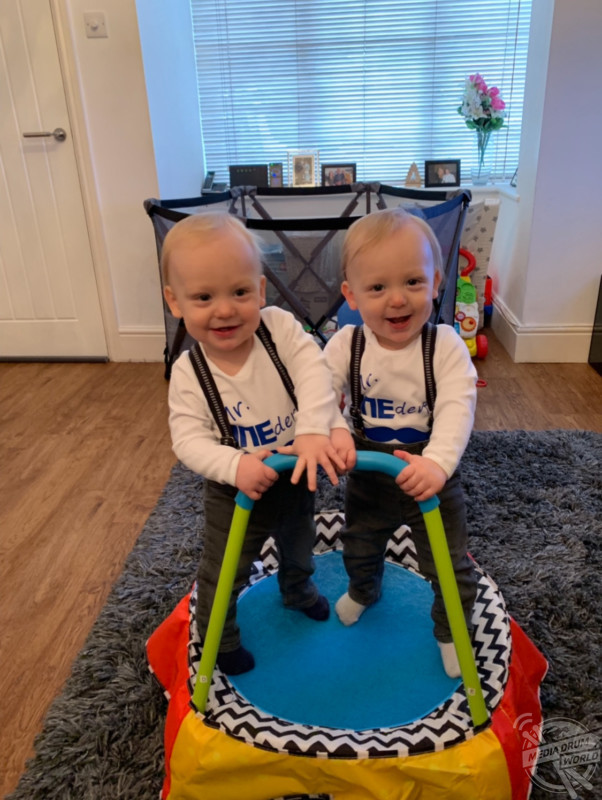
“Despite the risks, Karl and I tried our utmost to be optimistic in the face of adversity, especially when at every scan the consultant would reinforce the high-risk of my pregnancy.
“There was one consultant in particular who used to scan me and he’d spend at least 15 minutes checking everything before he would say anything at all. This always concerned me as I used to worry that there was something wrong when he didn’t speak for so long.
“We were told that our twins would be delivered via c-section between 32 and 34 weeks, but likely closer to 32 weeks to decrease the risk of cord compression as our babies grew bigger.”
Stevie’s c-section was originally booked for February 16 but there wasn’t enough staff in the neonatal ward, so the delivery was delayed by four days, to ensure the babies were kept safe in such a high-risk delivery.
Stevie had only heard of MCMA twins once before and it wasn’t something she knew about in detail. After fearing the worst and constantly being told how many risks there were throughout her pregnancy, she hopes to provide hope for parents who find themselves in a similar position.
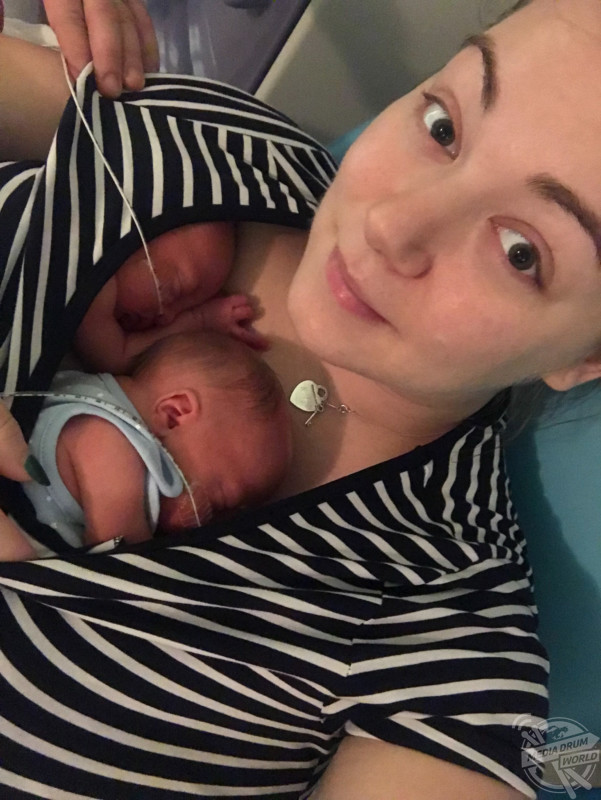
“Our boys were delivered safely by an expert team in the end. There were a couple of hitches with my spinal tap and epidural, so it took an hour and a half however,” said Stevie.
“They had a little CPAP in the first 24 hours to help with their breathing. They also had some blue light treatment for jaundice. But other than that, they did so well.
“They spent 13 days in NICU and six days in transitional care before coming home on my first Mother’s Day – I couldn’t have asked for a better gift.
“Since then, they have absolutely thrived, and we have just celebrated their first birthday. Despite being premature, both boys began crawling and pulling themselves up at nine months and don’t seem to have any problems with delayed development. We’re keeping everything crossed that they continue to amaze us.
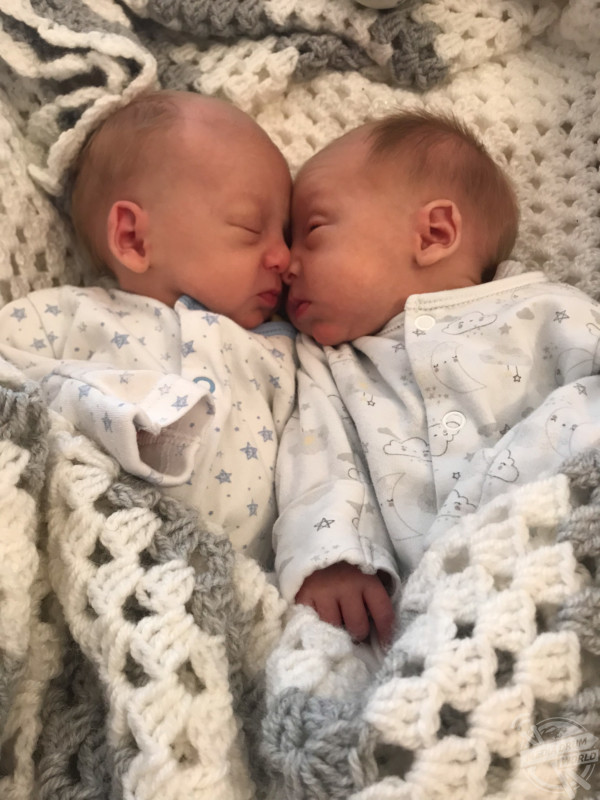
“MCMA pregnancies are so rare, even the doctors and midwives have very little knowledge of them. There is a MCMA UK Facebook support group which allows parents to share positive stories as well as give information and answer questions to newly diagnosed pregnant mums.
“I would love to share the positive story of my boys and how amazing they have done considering the high risk of the pregnancy.
“I want to give hope to parents who find themselves in the same situation with an MCMA pregnancy.”
To see more, visit https://www.instagram.com/the_mardy_twins/






